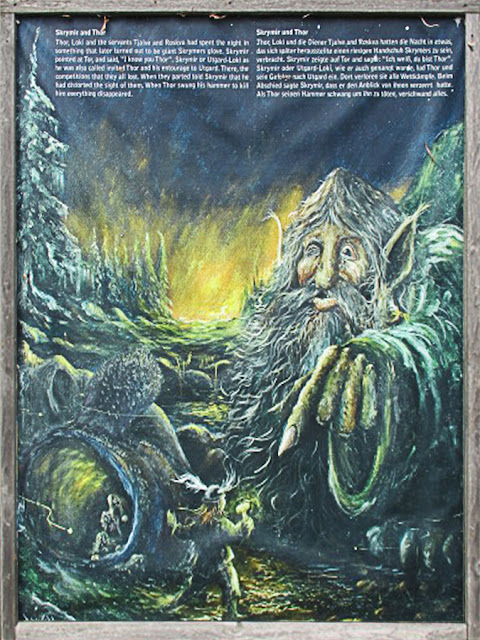SPOKU-Blog XI
Sunday, 25 October 2020
SPOKUpolonia ist das polnische Wikinger-Projekt auf der Insel Wolin, die sich mit experimenteller Archaeologie beschaeftigt und im Rahmen eines EU-Programmes mit Foteviken in Suedschweden und Haithabu in Deutschland kooperiert. Ziel ist die Aufmerksamkeit auf einen bestimmten Bereich der Besiedlung zu lenken.
Interessanterweise gibt es, auf Grund gesetzlicher Bestimmungen betreffend der Bodenuntersuchung, immer mehr solcher Fundorte,- so auch auf dem Landgut Stober in Nauen Funde des Stammes der Semnonen.
Die Beschaeftigung mit zeitlich zurueckliegenden Begebenheiten wirkten sich baulich und kunsthandwerklich auch in anderen Projekten aus:
Pakistan: Harappa-Kultur,
Kamerun: Staemme des Graslandes in der NW-Region.
Kolumbien: Aktivitaeten der Muiscas,
(und aehnliche Parallelen in BanglaDesh, SriLanka, Nepal, Iceland).
Weitere Informationen findet man durch Stoebern in den verschiedenen Blogs der DGFK.
Heute werden diesen kurzen Hinweisen bildliche Darstellungen damaliger Gottheiten der Wikinger beigefuegt.
Note for our foreign prospects
The https://spokupolonia.blogspot.com/ precedes the 11th issue with a statement.
SPOKUpolonia is the Polish Viking project on the island of Wolin, which deals with experimental archeology and cooperates with Foteviken in southern Sweden and Haithabu in Germany as part of an EU program. The aim is to draw attention to a specific area of the settlement.
Interestingly, there are more and more such sites, in line with the legal provisions regarding soil investigation, - so also the findings of the Semnonen tribe on the Stober estate in Nauen.
The pre-occupation with events in the past also had an impact on other projects in terms of construction and craftsmanship:
Pakistan: Harappa culture,
Cameroon: Tribes of grasslands in the northwest region.
Colombia: Activities of the Muiscas.
(And similar parallel in BanglaDesh, SriLanka, Nepal, Iceland).
Further information can be found through rummage in the various blogs (https://www.dgfk-archive.de/organizations/) of the DGFK.
Today these brief references are accompanied by pictorial representations of the Viking deities of that time.
Labels: DGFK, Dr Senta Siller, Historisches Dorf Gannahall, Ipc, Lutz Fluegge, Prof Dr Norbert Pintsch, Renate Perner
posted by Ume Farwa Shirazi @ October 25, 2020,
,
![]()













